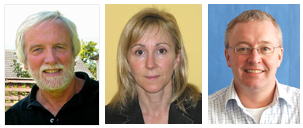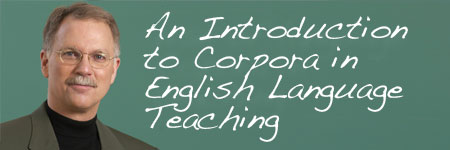Detail
This course will explain what a corpus is and how corpora have developed over the years. It will show you how to build and use a corpus to enhance your teaching and the experience of your learners. The course will include extracts of real language to give you a flavor of what you can get from consulting a corpus. You will see how corpora can be used to improve the teaching of vocabulary and grammar and also learn about data-driven learning and how to use this approach in an English language classroom. As you discover the many ways you can use teacher corpora, you will gain a better understanding of the communication that takes place in your classroom. Also, students who successfully complete this course will receive a TESOL Certificate of Completion.
About The Instructor

Michael McCarthy is Emeritus Professor of Applied Linguistics, University of Nottingham, UK, Adjunct Professor of Applied Linguistics, Pennsylvania State University, USA, and Adjunct Professor of Applied Linguistics, University of Limerick, Ireland. He is author/co-author/editor of more than 30 books and more than 70 academic papers. He is co director (with Ronald Carter) of the 5-million word CANCODE spoken English corpus project, and the one-million word CANBEC spoken business English corpus. He has lectured on language and language teaching in 37 countries and has been actively involved in ELT for 41 years.
Steve Walsh is Senior Lecturer in Applied Linguistics and TESOL in the School of Education, Communication and Language Sciences at Newcastle University. He teaches on the MA TESOL and Integrated PhD programs and supervises PhD students. He is the Degree Program Director of the integrated PhD, the largest of its kind in the UK. His research interests include classroom discourse, educational linguistics, conversation analysis, second language teacher education and professional discourse.
Dr Anne O'Keeffe is a lecturer at the Department of English Language and Literature, Mary Immaculate College, University of Limerick, Ireland. She has seventeen years’ experience as a teacher educator and English language teacher in Ireland, Spain, Belgium and Germany. She is author of two books, From Corpus to Classroom: language use and language teaching, with Michael McCarthy and Ronald Carter (Cambridge University Press, 2007) and Investigating Media Discourse (Routledge, 2006). She has also published a number of papers in edited volumes and international journals for example, TESOL Quarterly, Annual Review of Applied Linguistics, Language Awareness and she has written an entry on Second Language Speaking for the Encyclopedia of Language & Linguistics. She is also co-director of the Limerick Corpus of Irish English (LCIE) and the Limerick-Belfast Corpus of Academic Spoken English (LIBEL).
Charletta Bowen will be your facilitator in the Discussion Areas. She is an English as a Second Language (ESL) teacher and has been teaching ESL for 30 years. She currently teaches advanced level students at a university in the U.S.
Syllabus
A new session of each course starts monthly. If enrolling in a series of two or more courses, please be sure to space the start date for each course at least two months apart.
All courses run for six weeks, with a two-week grace period at the end. Two lessons are released each week for the six-week duration of the course. You do not have to be present when lessons are released. You will have access to all lessons until the course ends. However, the interactive discussion area that accompanies each lesson will automatically close two weeks after the lesson is released. As such, we strongly recommend that you complete each lesson within two weeks of its release.
The final exam will be released on the same day as the last lesson. Once the final exam has been released, you will have two weeks to complete all of your course work, including the final exam.
Requirements
• Internet access
• Email
• One of the following browsers:
o Mozilla Firefox
o Microsoft Internet Explorer (9.0 or above)
o Google Chrome
o Safari
• Adobe PDF plug-in (a free download obtained at Adobe.com .)


